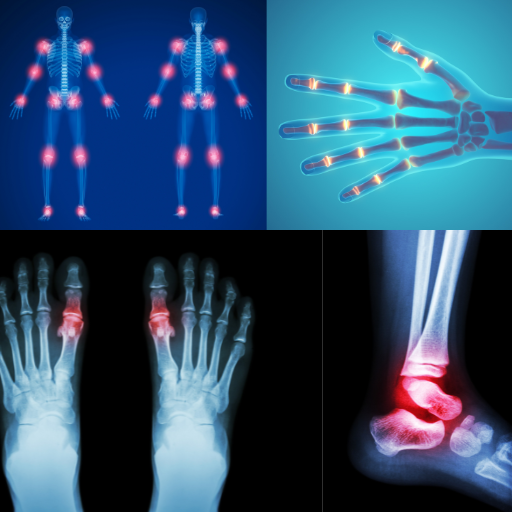
Understanding Rheumatoid Arthritis and Its Symptoms
Understanding rheumatoid arthritis (RA) is crucial for people with RA. This autoimmune disease occurs when the immune system mistakenly attacks the body’s own tissue, leading to inflammation and swelling in the joints. Common symptoms of rheumatoid arthritis include joint pain, stiffness, and rheumatoid nodules, often affecting small joints like the wrist and other sides of the body.
Diagnosis involves a physical exam, blood tests for rheumatoid factor, and x-rays to assess joint damage. Treatment options like disease-modifying antirheumatic drugs aim to reduce pain and inflammation while slowing disease progression. The goal of treatment is to manage arthritis symptoms effectively.
For people who have rheumatoid arthritis, joining a support group can help in coping with the risk of developing rheumatoid arthritis and its related symptoms may. Understanding the signs and symptoms enables timely intervention, potentially increasing the risk of avoiding severe complications.
KEY POINTS
Rheumatoid arthritis is an autoimmune disease that causes joint inflammation, pain, and stiffness, requiring early diagnosis and proper management to prevent complications.
A diet rich in anti-inflammatory foods like fatty fish, leafy greens, and whole grains can help reduce joint pain, while avoiding processed foods and trans fats can prevent flare-ups.
Regular low-impact exercises like yoga, swimming, and stretching can improve mobility, reduce stiffness, and enhance overall joint health.
Lifestyle changes such as stress management, quality sleep, hydration, and avoiding smoking and alcohol play a crucial role in managing rheumatoid arthritis symptoms and improving well-being.

Pop in your email below, and we’ll zip it straight to your inbox so you never lose it!
Pain Relief Strategies for Rheumatoid Arthritis
Managing rheumatoid arthritis pain requires a combination of medication, lifestyle changes, and self-care techniques. Anti-inflammatory foods, low-impact exercises, and gentle stretches can help reduce stiffness and improve mobility. Heat and cold therapy, stress management, and adequate rest are essential for relief. Consulting a rheumatologist and exploring options like physical therapy or acupuncture may provide additional support. Finding the right pain relief strategies can enhance quality of life and help you stay active despite RA symptoms.
Best Diet for Rheumatoid Arthritis: What to Eat and Avoid
A rheumatoid arthritis-friendly diet can help reduce inflammation and ease joint pain. Focus on anti-inflammatory foods like fatty fish, leafy greens, berries, nuts, and whole grains, which provide essential omega-3 fatty acids and antioxidants. Avoid processed foods, red meat, refined carbohydrates, and trans fats, as they can trigger inflammation and worsen symptoms. Staying hydrated, maintaining a balanced diet, and incorporating plant-based options can support joint health and overall well-being for those managing rheumatoid arthritis.
Looking to take control of your weight & nutrition?

Exercises and Stretches to Improve Mobility

Regular exercises and stretches can help improve mobility, reduce stiffness, and enhance overall flexibility. Low-impact activities like yoga, swimming, and walking support joint health while minimizing strain. Stretching exercises targeting the spine, hips, and knees can increase range of motion and ease tension. Focus on gentle movements, proper posture, and breath control to avoid injury. Strengthening your core muscles and maintaining a consistent routine can enhance balance, stability, and long-term mobility, keeping you active and pain-free.
Lifestyle Changes to Manage Rheumatoid Arthritis
People with rheumatoid arthritis (RA) often experience joint inflammation due to an immune system attacks that causes inflammation. This disease that causes pain and fatigue can cause problems with blood vessels and may lead to joint replacement in severe cases. Early diagnosis and treatment are crucial for managing symptoms.
Rheumatoid arthritis affects different individuals uniquely, and RA may require various types of medications to treat RA. Making lifestyle changes can support management of rheumatoid arthritis (RA) and reduce flare-ups. Rheumatoid arthritis increases the risk of complications if left untreated.
A balanced diet rich in anti-inflammatory foods, regular low-impact exercise, and stress management techniques like yoga or meditation can improve well-being. Prioritizing quality sleep, maintaining a healthy weight, and avoiding smoking and excessive alcohol can also help. Working with a rheumatologist, staying active, and listening to your body are key to managing RA symptoms and enhancing overall quality of life.
Home Remedies and Natural Ways to Ease RA Symptoms
Managing rheumatoid arthritis (RA) naturally can help reduce inflammation and improve daily life. Simple lifestyle changes like gentle exercises (yoga, stretching, and tai chi) can enhance mobility and reduce stiffness. Applying heat or cold packs helps soothe sore joints, while Epsom salt baths provide relief from pain. Turmeric, known for its anti-inflammatory properties, may help reduce inflammation, and omega-3 fatty acids from fatty fish can support joint health. A balanced diet rich in anti-inflammatory foods, like fruits and vegetables, whole grains, and nuts, is essential. Managing stress through meditation, deep breathing, or gentle walks can also help prevent flare-ups. Essential oils like eucalyptus and ginger may provide soothing relief when applied to affected areas. Staying hydrated, maintaining a healthy weight, and prioritizing restful sleep all contribute to managing RA symptoms effectively. While home remedies offer support, consulting a rheumatologist ensures the best treatment approach.
How to Prevent Rheumatoid Arthritis Flare-Ups
Preventing rheumatoid arthritis (RA) flare-ups involves a combination of lifestyle adjustments, medication management, and stress reduction. Eating an anti-inflammatory diet, staying physically active with low-impact exercises, and prioritizing rest and sleep can help. Managing stress through yoga or meditation, avoiding triggers like smoking and processed foods, and following your doctor’s treatment plan are essential. Staying hydrated, maintaining a healthy weight, and protecting your joints with proper ergonomics can further reduce the risk of RA flare-ups.
When to See a Rheumatologist: Seeking Professional Help
If you experience persistent joint pain, swelling, stiffness, or fatigue, it may be time to see a rheumatologist. Early signs of rheumatoid arthritis (RA), like morning stiffness lasting over an hour or symmetrical joint pain, shouldn’t be ignored. If symptoms worsen despite home treatments, or if daily activities become difficult, seeking professional help is crucial. A rheumatologist can diagnose autoimmune conditions, recommend medications, and create a personalized treatment plan to help manage RA symptoms and prevent joint damage.











